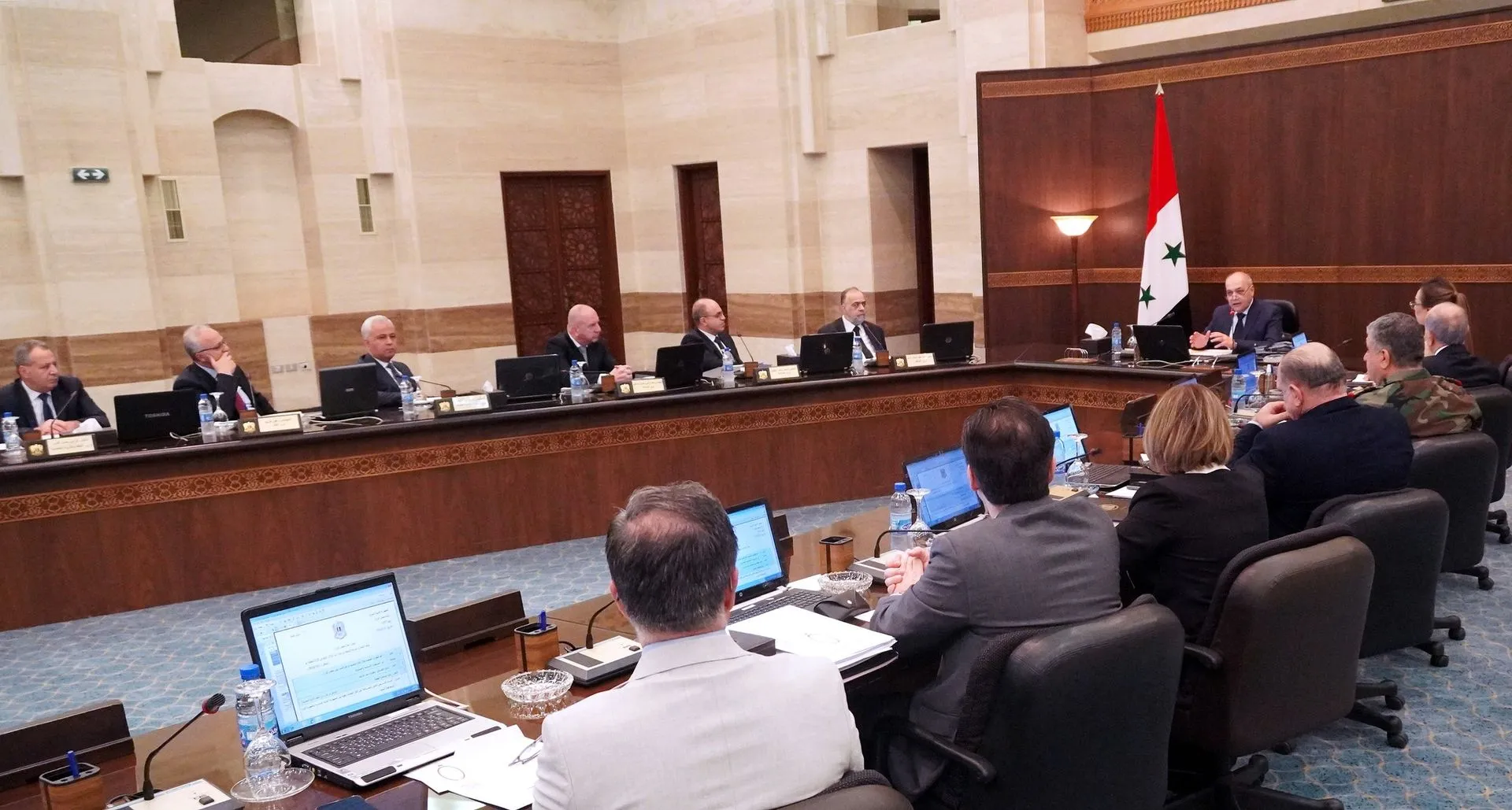
Increase in the Share of the Baath Party and Minor Changes in Religious Composition:What’s New in Jalali’s Government?
After the Assad regime conducted the 2024 legislative elections, the government of Hussein Arnous was deemed resigned according to Article 125 of the 2012 Constitution, necessitating the formation of a new government. On September 14, 2024, Syrian President Bashar al-Assad issued Decree No. 223, appointing Mohammad Ghazi al-Jalali to form the new government, which was announced on September 23, less than ten days after his appointment.
Mohammad Ghazi al-Jalali’s name was not widely circulated as a candidate for the premiership, although he previously held the position of Minister of Communications for two years between 2014 and 2016. Nevertheless, his appointment appeared logical from Assad’s perspective, as Al-Jalali possesses the qualifications sought by the regime for this role. He hails from Damascus, is Sunni, and has roots in Quneitra province, specifically from the occupied town of Masada. Additionally, Al-Jalali holds an advanced degree and sufficient experience to qualify him for the role of Prime Minister.
Al-Jalali was among those invited by Bashar al-Assad to attend the Baath Party Conference in May 2024, and he was one of the 45 individuals appointed by Assad to the Central Committee of the Baath Party, out of 125 total members. Although he was not appointed to the party’s Central Leadership at that time, with Hussein Arnous placed in the Central Leadership by virtue of his position as Prime Minister, it is expected that Arnous will either be replaced by Al-Jalali in the future or that Al-Jalali will be involved in leadership meetings in his new capacity as Prime Minister. Since the Central Leadership of the party is responsible for shaping government policies, Al-Jalali’s involvement in these meetings has become essential.
Al-Jalali’s government introduced several changes, differing slightly from the previous government of Hussein Arnous in its final formation before resignation. In comparing the two governments, we find:
In the new formation, the number of ministers decreased to 28 instead of 29, as one State Minister position was eliminated. Thirteen ministers assumed their positions for the first time in this government.
Notably, the number of ministers under foreign sanctions in al-Jalali’s government is significantly lower compared to the Arnous government. This is largely due to the fact that many of the ministers are new and have not yet been subjected to sanctions. Typically, the European Union and the United Kingdom impose sanctions after a minister has held office for a certain period, while U.S. sanctions tend to be more targeted and usually focus on specific individuals or entities. It is expected that over time, these new ministers will also be sanctioned.
One of the key outcomes observed is the increased share of the “Baath Party” in the new government, with their representation rising to 24 ministers. Four of these ministers are members of the Central Committee of the Baath Party: Mohammad Ghazi al-Jalali, General Ali Mahmoud Abbas, Bassam al-Sabbagh, and Ziad Ghosn. All of them are among the 45 members directly appointed by Assad to the Central Committee. This increase in Baath Party representation came at the expense of other parties under the umbrella of the “National Progressive Front,” which were given non-sovereign ministries or non-portfolio ministerial positions.
In terms of religious/sectarian background, Sunni representation increased, while representation of Alawite and Christian Syrians decreased. An Ismaili Syrian minister was replaced by a Druze Syrian minister. As for gender representation, al-Jalali’s government includes only 3 women compared to 4 in the Arnous government, which remains a very small percentage.
Geographically, the distribution of the government positions has shifted as follows:
Between the Arnous government and the Al-Jalali government, the geographical weight of the government has shifted from Damascus to its countryside. The number of ministers from the provinces of Aleppo, Homs, and Quneitra increased, while the number of ministers from Hama, Latakia, and Idlib decreased. Meanwhile, the provinces of Daraa and Tartous maintained the same number of ministers in both governments. However, it is evident in both administrations that Assad’s regime has completely excluded the provinces of the eastern region.
According to Article 97 of the 2012 Constitution, Bashar al-Assad, as “President of the Republic,” holds the authority to appoint the Prime Minister, his deputies, and the ministers, as well as their deputies, in addition to accepting their resignations or dismissing them from their positions. In practice, however, the internal branch /251/—also known as the Khatib Branch, part of the General Intelligence Directorate—oversees the entire process. This branch nominates candidates and conducts background checks to ensure they align with the position’s requirements and with what Bashar al-Assad and the Presidential Palace desire. These roles were particularly evident when Mohammad Nassif and Bahjat Suleiman were leading the branch.
Ultimately, Assad’s reshuffling of the government comes after the latest legislative elections, as part of a broader series of changes and restructuring efforts he is undertaking, both within the party and the military, especially following his announcement of plans to shift towards a “professional army” and his special plan for reserve service. However, this does not necessarily mean that the new government will be able to resolve the ongoing crises in Syria, which are primarily caused by the regime itself.
Below are profiles of all the ministers in Mohammad Ghazi al-Jalali’s government, along with some related statistics:
